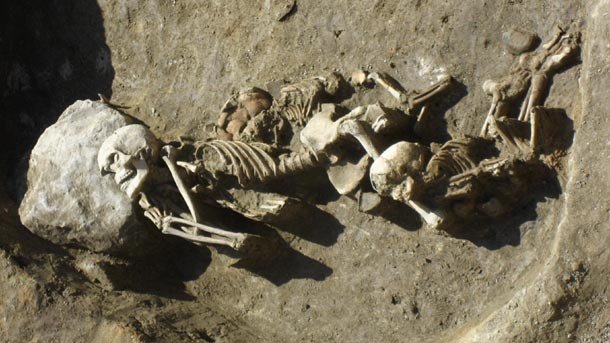Many people view salt as a usual food spice or supplement. There is a wide-spread view that salt harms peoples’ health when used in higher quantities. Some people call it the “White death”, although it is essential for the human body. However, it turned out that this crystal substance was connected with the development of the oldest civilization in Europe! The oldest town on the European continent emerged due to the salt output 6500 years ago in the vicinity of the Varna Lake. Archeologists who have been researching the salt-cellars near this lake have found evidence of the Bulgarian past, thus enriching our knowledge about a little known culture, which once gave the start of the European civilization.
Salt was the medium of exchange for centuries on these lands, rather than gold or money. This is why people who possessed huge quantities of salt in the past were among the richest and most influential ones at that time. The oldest and biggest salt-cellar in Europe emerged near the present town of Provadia, in the vicinity of the Varna Lake. This ancient cultural and trade center emerged due to the massive exchange of this product. This is proved by the remains of a massive prehistoric town, which emerged near this lake 6500 years ago. “The town was fortified with massive stone walls, which were over 3 meters high and 2 meters wide, which was not typical for this ancient prehistoric period”, says Professor Vasil Nikolov who works at the National Archeological Institute with museum at the Bulgarian Academy of Sciences. During the 5th millennium BC this region became a leading economic center in this part of the continent. The salt bars from Provadia were once used as money equivalent. They reached distant lands and brought huge wealth and opulent life to the local population. The place was very densely built-up with many beautiful and multi-functional houses at that time. The salt-cellar was on one side of this town and a religious center was situated on the other side. Recently, the team of Professor Nikolov discovered the necropolis, where the deceased were buried.

“Many copper objects were laid in the tombs. However, no copper was extracted in this region, so all the copper materials were imported from Northern Europe. These were copper axes, junipers and spiral needles. All of these objects were a symbol of high social status. In fact the finds near Provadia make us believe that the ancient salt-cellar and the local population were connected with the Varna Necropolis, which dates back to the 5th millennium BC, where the oldest processed gold in the world was found. We suppose that the rich people, who were buried in this necropolis made their fortune by selling salt, produced near Varna Lake. Besides, the trade with this popular product provoked the development of an economic society, where people had different social status. This is why we have the reason to call the settlement near the salt-cellar a “Prehistoric town”, says Professor Nikolov.
The most interesting finds are the multiple fragments of ceramic pots, where ancient people used to boil the salty solution until the dry substance was extracted. In fact the team of professor Nikolov also found the casts, where the salty bars were made. These were salty cubes of different size, which were dried and baked under a special ancient technology. “This was the first ancient money in the so-called Eastern Mediterranean region”, said Professor Nikolov and added that actually the salt-cellars near Provadia were the “mint” of the Balkans.
Why the prehistoric town near the Varna Lake perished? It was probably because of the dry climate at the end of the 5th millennium BC. The local people could not develop agriculture and many of them became nomads. They started to breed herds and moved with them. This is how this ancient civilization and the town of Provadia declined. Slowly its salty springs became dry and the production of salt stopped completely. This gave the end of a flourishing ancient civilization.
English version: Kostadin Atanasov
The book "Icons from the National Church Historical and Archaeological Museum" - a huge work of over 500 pages, with more than 700 published photographs and accompanying scientific articles, was officially presented a few days ago. The unique..
A humble military chaplain made his first contact with Bulgaria in 1921, arriving with the mission of searching for Italian soldiers who had disappeared without a trace during World War I. However, he did not remain indifferent to the fate of this small..
Beloslav is a small town on one of the branches of Varna Lake. Yet it is here, in this quiet little town, that the only preserved Bulgarian submarine – Slava – is anchored . It was decommissioned a long time ago, and has now been turned in one of..
The book "Icons from the National Church Historical and Archaeological Museum" - a huge work of over 500 pages, with more than 700 published photographs..

+359 2 9336 661
